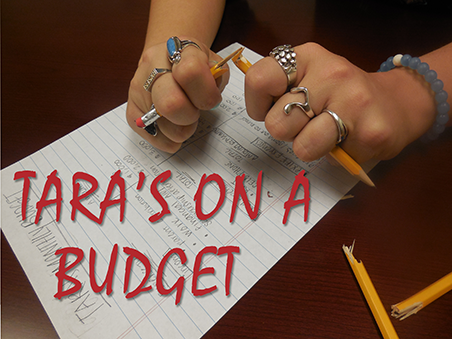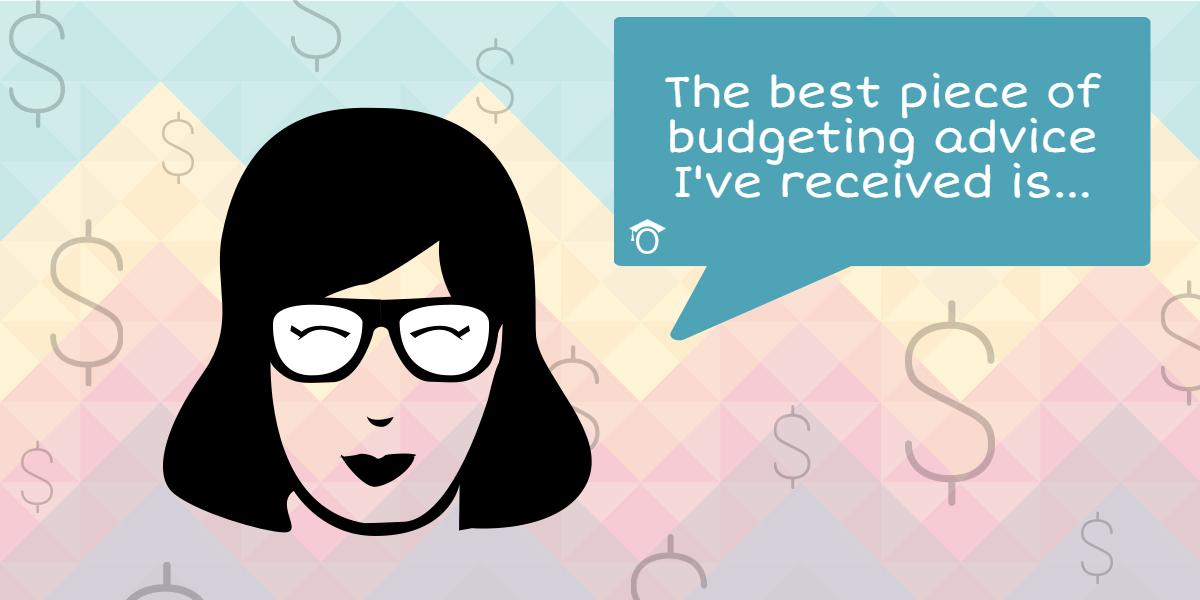Getting my very own credit card taught me that it is easy to spend money quickly. For those of you who have read my previous blog post on retail therapy know that it is a weakness of mine. Unfortunately, those two things – a credit card and retail therapy – don’t go together well (especially at the end of the month when my statement comes!). I knew I had to find a solution, so I headed over to my laptop and searched budgeting advice with the hopes that the Internet gods would provide me with some profound motivation.
As you could imagine, the Internet did not fail me. I found a copious amount of articles with great tips, but I had come to realize something: I already heard the profound, motivational budgeting advice I was looking for!
Before I share that advice with you, I want to say that it’s simple, and you may even question why I found this motivational. Sometimes, the simple, less complex things are the ones that speak to us the most.
So… the best piece of budgeting advice I’ve received is— don’t buy what you don’t need. In the moment I heard that, I probably just rolled my eyes and thought, obviously! But when I took the time to really internalize it, that simple statement changed the way I budgeted my money.
I want you to think about all the things you bought in the past month. Once you’ve got a good idea on what those expenses were, I want you to ask yourself: Did I really need this? I pulled the definition of “need” and “want” in case you needed to refresh your memory:
Now you have proof that “to need” and “to want” are not the same thing. I ask myself this question a lot now, whenever I am out and feel the urge to buy something. More often than not, the item I wanted to buy was not something I needed in order to live or succeed.
Applying this concept to your budget starts with you. Any time you want a different outcome, you have to change something. Take my situation for example: it was easy for me to spend money on meaningless ‘wants’ with my credit card. To get a new outcome, I had to make some drastic changes. The first thing I did was stopped bringing my credit card with me. Leaving it at home meant that I couldn’t spend more money.
When I went to actually create my budget, I allowed myself a very small amount for ‘wants’. Don’t get me wrong, I do believe we should get some enjoyment out of life; but I also believe financial turmoil will negatively impact any enjoyment I want to have in the future. Each month, I take that small amount of money out in cash. I pay for my bills, put money in savings, and then when my ‘wants fund’ runs out I don’t make an impulsive decision to put an item on my card.
I have come to find that when we are searching for an answer to something, more often that not, we already know that answer. The advice I shared with you today may be simple but can really impact the way you spend and save your money. I strongly believe that as a college student, we should consciously thinking about our futures. We can have ‘champagne dreams’ all we want, but if we don’t make progressive moves towards those dreams, they will forever remain only dreams.
Life comes down to choices. Choices can both positively and negatively impact your life. I encourage you to think about the choices you make, especially with your personal finances.

As Blogger and budget aficionado, Tara K. helps students across the country enhance their knowledge about money management and everyday life. She is constantly looking for new ideas to transform into great advice for you. Pursuing a journalism major, Tara K. has a passion for the art of inquiry, which is conveyed through her writing.


